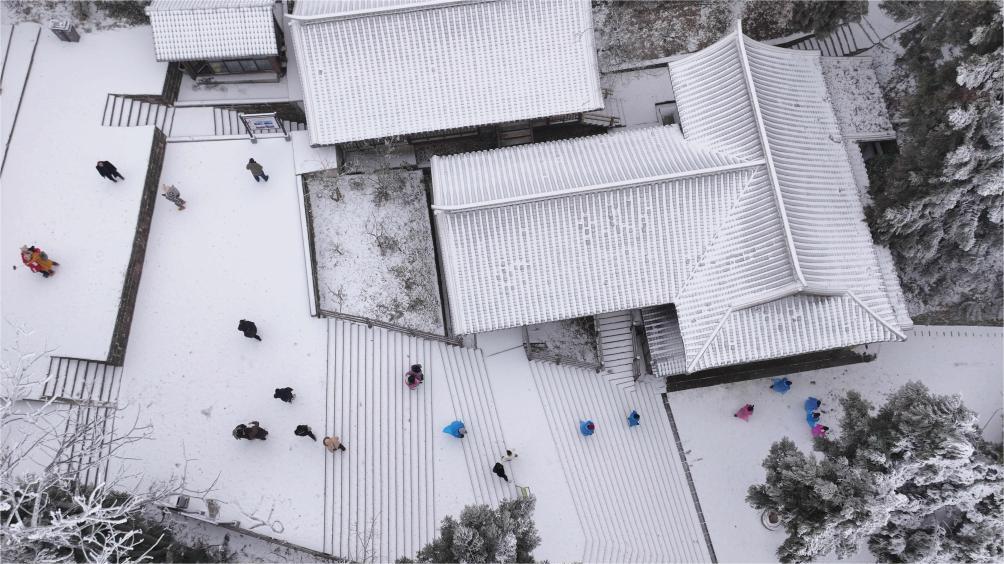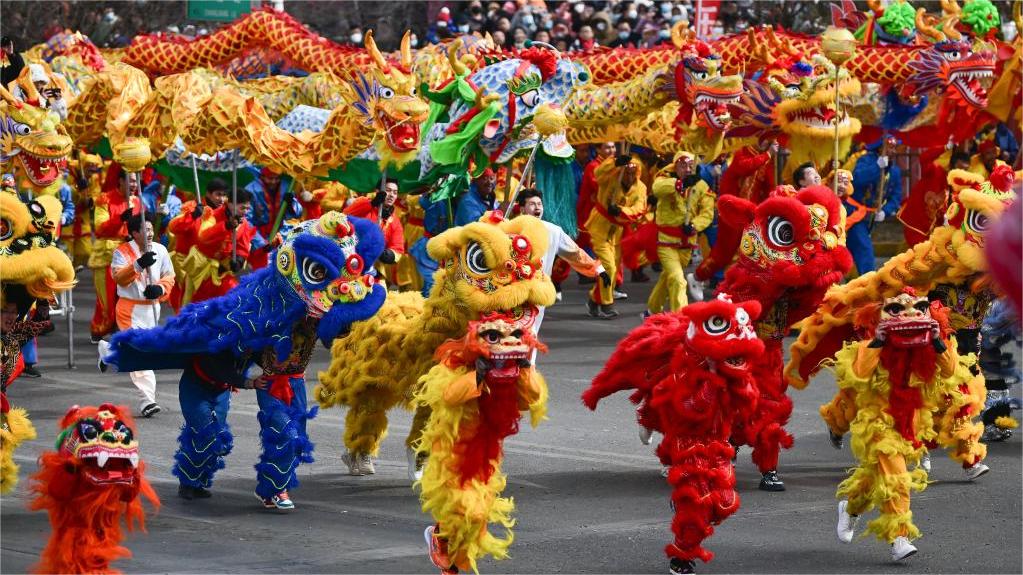Legislation advances whole-process people's democracy
Thanks to the enactment and modification of several laws last year, China's system of people's congresses has been further improved, contributing to ensuring that the people are the masters of the country, experts said.
While enabling the people to participate more in state governance, the experts said that the improved system has also helped to promote whole-process people's democracy, the mode of democracy in China that guarantees people's right to take part in democratic elections, consultation, decision-making, management and oversight.
This key concept was first put forward by President Xi Jinping in Shanghai in November 2019 during an inspection tour of the city's Hongqiao subdistrict.
In 2014, when addressing an event to mark the 65th anniversary of the founding of the Chinese People's Political Consultative Conference, the nation's top political advisory body, Xi said, "Democracy is defined not only by people's right to vote in an election but also by the right to participate in political affairs on a daily basis."
In a recent article by Xi, who is also general secretary of the Communist Party of China Central Committee and chairman of the Central Military Commission, the upholding and improvement of the people's congress system was reiterated, as it is an important institutional vehicle for realizing the concept.
The article was published on Feb 16 in Qiushi Journal, a flagship magazine of the CPC Central Committee.
In China, the people exercise state power through the National People's Congress, the country's top legislature, and local people's congresses at different levels, guaranteeing that their interests are reflected in the decision-making process.
The people's congress system is a foundational political system for upholding the unity between leadership by the Party, the running of the country by the people, and law-based governance, the article said, adding that since the 18th CPC National Congress in 2012, the CPC Central Committee has continued to advance theoretical and practical innovations in the people's congress system.
Mo Jihong, head of the Chinese Academy of Social Sciences' Institute of Law, said the legislative items completed over the past year contributed to improving the system.
Last year, China passed the amendment to the Legislation Law, which allows the greater participation of deputies to people's congresses in legislative activities, including lawmaking and the inspection of law enforcement.
The country also updated rules for members of the NPC Standing Committee, requiring them to increase their connection with deputies, especially those from grassroots areas, by various means in order to deeply learn people's opinions and respond in a timely manner to the public's concerns.
In addition, the supervisory power of people's congresses is being strengthened, as China began amending the Law on Supervision by the Standing Committee of the People's Congresses at All Levels, with the adoption of a decision that streamlines the process of reviewing normative documents for the first time.
The decision, which aims to strengthen the supervisory role of the NPC Standing Committee, clarifies that all normative documents, such as administrative regulations and judicial interpretations, should be examined to ensure they are consistent with the Constitution.
Mo, from the Chinese Academy of Social Sciences, hailed the legislative actions, saying that they are conducive to optimizing the workflow of the people's congresses at each level, upgrading their functions, and thus improving the people's congress system.
"The updates and revisions to the laws also help people's congress deputies better perform their duties, so that the voice of the people from all walks of life can be heard clearly," he said.
Zhang Yuzhen, a deputy to the National People's Congress from Fujian province, said, "The people's congress system is a crucial channel for conveying public suggestions in state governance."
Zhang, who is also head of the Fujian Academy of Environmental Science, submitted a proposal on amending the Maritime Environment Protection Law to the NPC after seeking opinions and ideas from her colleagues and coastal residents.
"Soon, some officials from the NPC Standing Committee visited my hometown to conduct surveys to understand more about my proposal," she told China Daily.
"I was also invited to Beijing to attend seminars with environmental departments and organizations to jointly study how to ramp up ocean pollution prevention when the law was being revised."
In October, the amended law was passed by the NPC Standing Committee, and it took effect on Jan 1.
"What made me happier is that my proposal was heard by and received the attention of the top legislative body, indicating that the people's congress system works," she said.
"I was elected as a deputy by the people. My duty is to serve the people and speak for their interests. Only when channels for collecting the public's opinions are open and smooth can people's difficulties in their work and life be truly resolved."
With new ideas and suggestions collected in her hometown, Zhang added that she is ready to go to Beijing to attend the second session of the 14th NPC, which is scheduled to open on March 5.
Calling for continuous efforts to improve the people's congress system by rule of law, Mo said, "The optimized institutional vehicle will be a stronger support for developing whole-process people's democracy to make the voice of the people louder and clearer."
"The greater participation of the people in social governance is the best embodiment of running the country by the people," he added.
Taking a people-centered approach to legislation and to promoting whole-process people's democracy, the NPC Standing Committee also formulated and reviewed several other laws concerning people's livelihoods last year, including those on charity, construction of barrier-free facilities, preschool education and the prevention of infectious diseases.
In addition, a number of reports, including those on fighting domestic violence and mental health, were submitted for review to the NPC Standing Committee.
Photos
Related Stories
- Xi says ready to join president of the Republic of the Congo for stronger strategic partnership
- Xi's passion and action for winter sports and activities
- Xi stresses boosting guarantee ability of land element for high-quality development of regions with competitive strengths
- 'Old friends' in US hail benefits of bond with Xi
- Xictionary: Chinese modernization
- Xi's thought on ecological civilization guides Xiamen's green shift
Copyright © 2024 People's Daily Online. All Rights Reserved.









